HOME | ABOUT US | MEDIA KIT | CONTACT US | INQUIRE
HOME | ABOUT US | MEDIA KIT | CONTACT US | INQUIRE
Executives from women- and minority-owned companies reflect on the pathway to success, and how they forged their own way.
Among its multiple challenges, 2020 has been a year for hard conversations about work-force aspects of diversity and inclusion in America. But for all the attention paid to matters of equality and equity, how often have you heard mention of proven successes among diverse companies owned by women and minorities? The reason we have public policies to assist WBE/MBE firms is a shared belief that diversity in business ownership benefits the overall economy and our social structures. Not all companies in those buckets benefit equally from such ownership—those in the construction sector, for example, prosper in part because of that status. Yes, barriers to success remain. If you don’t believe that, have a candid conversation with any woman or minority owner who has built an enterprise from the ground up. But they’ll also tell you that, no matter what hurdles are put in front of them based on their gender, race or ethnicity, customer-focused entrepreneurs will eventually overcome, drawing on a blend of personal values, organizational commitment and servant-leader mentality. Ingram’s sounded out half a dozen successful executives of minority- and women-owned businesses to address these overlooked aspects in the national discussion about the nature of equity. We think their stories represent a lot of what’s right about America. And that they can inspire all of us to consider new ways to think about the way we promote social change. Business is the vehicle for their success. Values are the keys that turned the motor. There’s a lesson in there for all of us.
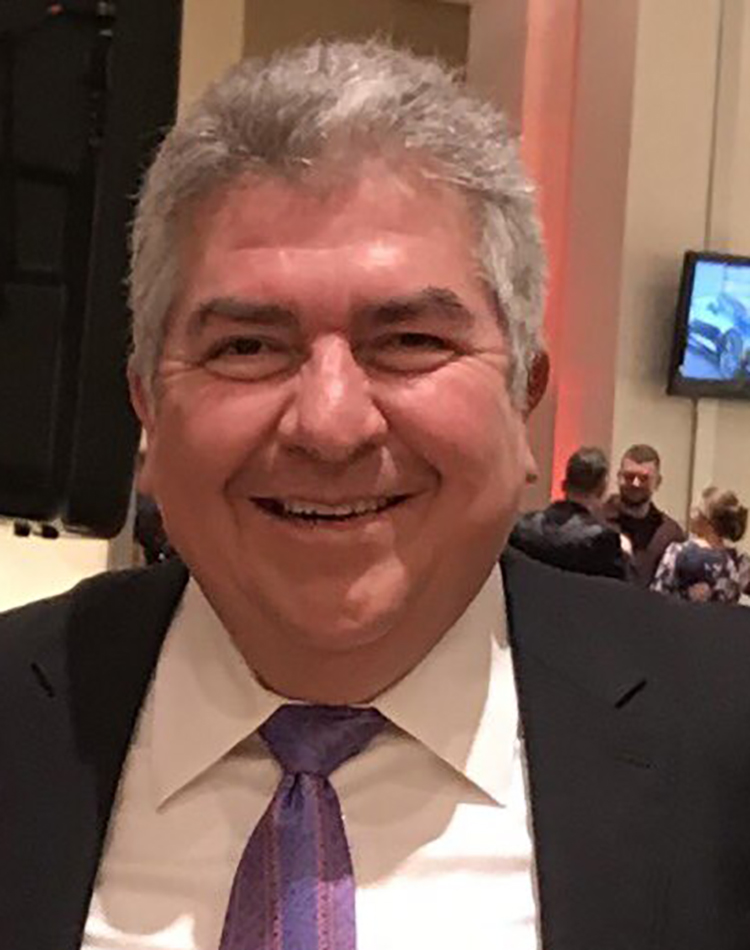 CARLOS LEDEZMA
CARLOS LEDEZMAHands-down the most successful minority-owned business in the Kansas City region is Cable Dahmer Automotive Group, which blitzed past the half-billion dollar mark in sales last year, recording nearly $565 million. But you can search high and low on the directories of certified minority-business enterprises in the two-state region and not find Carols Ledezma’s company. He made it to the top without that distinction. Far more important than the way the world views your enterprise is the way your enterprise views the world, he says. “One thing we believe in is that, instead of competing, let’s just create,” says Ledezma, who bought into the ownership at Cable Dahmer just two years after joining the company. “You’ve got to create in a way that provides a different level of service for your customers, and we do that at every turn we possibly can.” With extended warranties, service, pickup and delivery—any aspect of the business that touches a consumer carries the potential to make a customer for life. It is a leadership view crafted from personal experience that dates to his arrival in the U.S. from Mexico when his parents immigrated. “Mom and Dad were great servants,” Ledezma says. “When I was younger, I didn’t understand why they enjoyed serving others so much. I would watch them as they served others around them, working at a dude ranch. It was amazing how they were always making sure others were being taken care of; it came to them so naturally. I asked them if they ever got tired of it and they said, no, we enjoy it.” Applying those lessons to business leadership, he says, “you have to start with serving others and caring about other people. When you care about them more than you care about yourself, what ends up happening is you develop people to levels they never thought they could get to.” In business, the No. 1 quality of a leader, Ledezma says, is the ability to make good servants out of those around him. “You have to first start with people serving the customers. If you don’t have a good servant-leader taking care of the people in an organization, they won’t serve customers well, either.” So, if he could travel back to meet a young Carlos Ledezma, what guidance might he offer today? “I would tell him to plant more trees where you never get shade. I really believe that if you are less selfish and agree to help others, you will accomplish more than you can possibly imagine. I feel like I’ve helped a few people in my career; I just wish I would have touched more lives along the way.”
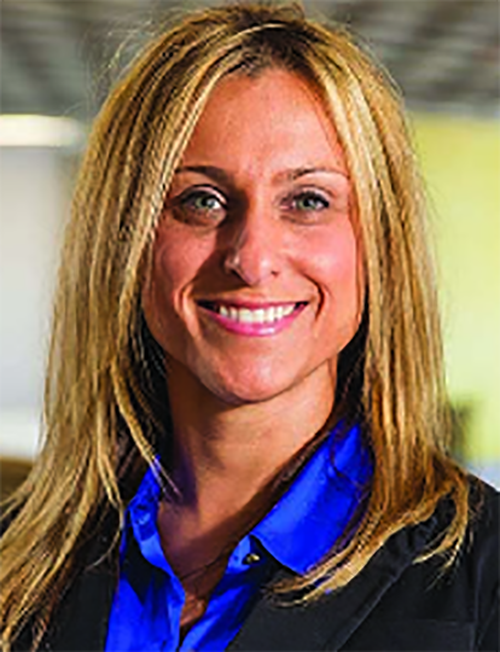 BRANDY McCOMBS
BRANDY McCOMBSAsk Brandy McCombs about the difference-making potential of being a certified woman-owned business enterprise, and you won’t be surprised about its importance for her company, but you might be about the impact early on. “I would say when we first started, it wasn’t really relevant,” says the founder and chief executive of IBC, Inc., the brand for International Builders & Consultants. “The woman-owned status is mostly held with government projects, but in 2009, those were very few and very far between,” she says. Instead her company—which now operates on two tracks of building improvements and road-construction signage and striping—got off the ground with privately funded jobs, she says. That, of course, has changed over the past five years as she has been able to wield that designation to compete for work on some large-scale public infrastructure projects, including Kansas City Inter-national Airport. And it has helped take her 11½-year-old company from startup to nearly $18.9 million in 2019 revenues. Certification, she says, “has opened up doors left and right. It has been very valuable. With KCI, where we did the traffic controls as they were shutting down roads, putting up barriers, routing traffic and doing road striping, if we had not had the WBE, we probably would not have done that work.” So yes, it’s been one tool for success at IBC, which has made four consecutive appearances on Ingram’s Corporate Report 100 list of the region’s fastest-growing companies. But it’s just one tool in the toolbelt. The biggest, she declares, is “accountability.” “I’m looking for somebody who is accountable,” McCombs says. “I hold myself accountable for a lot of things that sometimes, clearly, are not my fault. But there’s not a lot of that in the world. When somebody holds themselves accountable and can admit it when sometimes they’ve done some thing wrong, that’s what I’m looking for. That’s what makes them trustworthy.” You can trace a straight line between her childhood and her own quest for people with that trait. “My father was demanding,” says McCombs, one of four children raised in Ohio. “He was stern. When he asked a question, you’d better have the answer, and it better not be pointing a finger at someone else, because you’d be in trouble. I was one of the children who got punished when I lied, but that made me who I am today.”
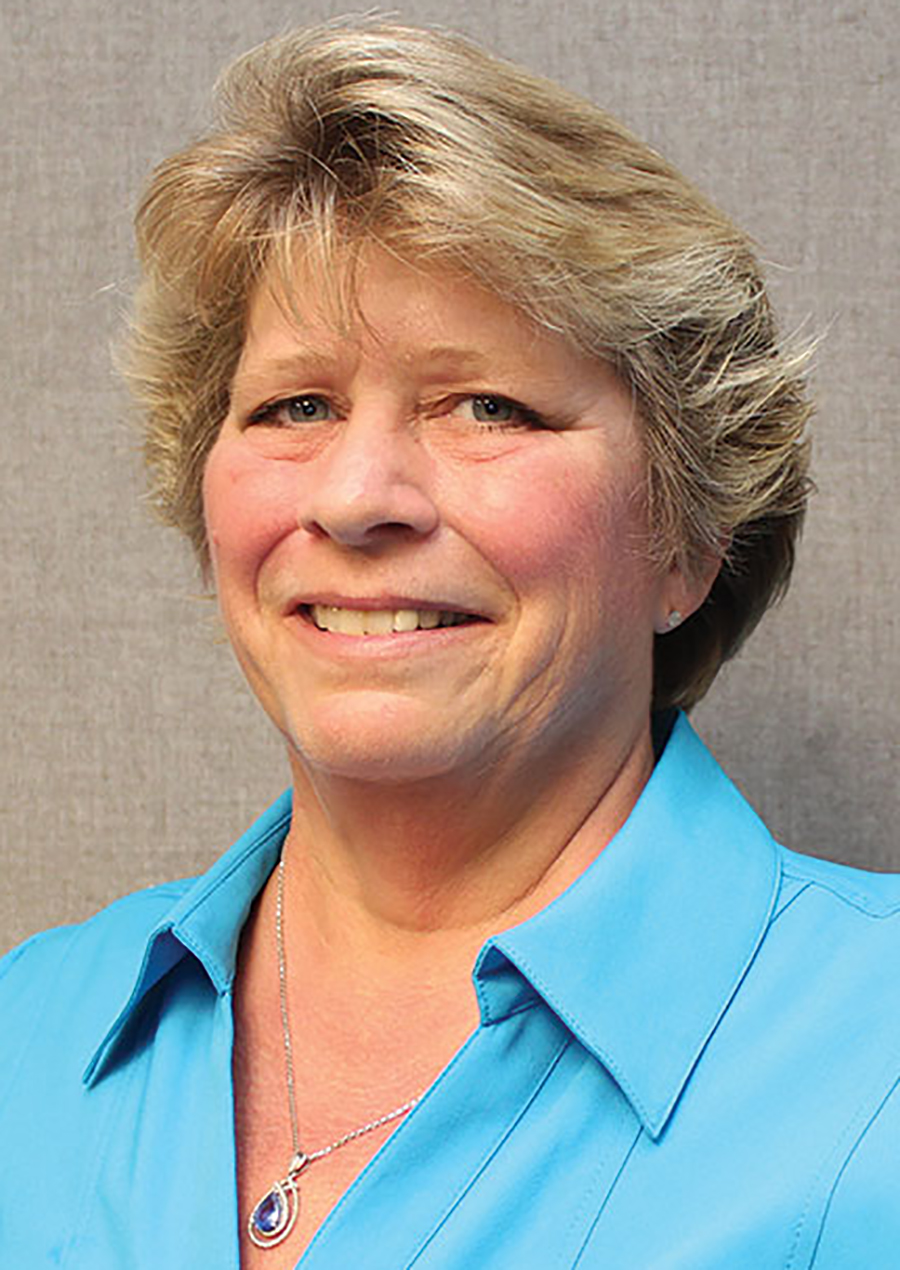 MARY McNAMARA
MARY McNAMARAMary McNamara has always been one to call it the way she sees it: “Having a WBE may get you in the door, it may get you that first job, but you still must execute and build or maintain your company’s reputation based on the quality of the service you provide,” says the owner of Cornell Roofing & Sheet Metal. “It is critical for that race or gender difference to be erased when you get to that job. No special treatment.” Construction has long been singled out for lagging other business trends—adoption of technology comes quickly to mind—but with a few notable exceptions, it’s not winning any prizes for its embrace of gender diversity. Too often, female executives say, the mask slips with some of their male peers, and old biases peek through. “Some of it still exists,” says McNamara. “You have to walk through it and do the best job your company can do and everybody else has to just get over it. It would be nice if sometimes they just thought of you as a really good roofer.” To become that roofer, McNamara has built a company that draws on her own core values and leadership qualities: Honesty, integrity, perseverance and flexibility. “For myself, these are my most treasured leadership qualities,” she says. “These are all common words we hear in business—but are we really practicing them? When it comes to honesty, she says, “I understand how delivering the hard truth can be challenging and may not put you in the best light. Ultimately though, you have to look in mirror and be true to yourself knowing you have treated others with honesty so you can turn off that light and sleep soundly.” Integrity means doing the right thing because it’s the right thing, period. Perseverance means shrugging off life’s curve balls and starting fresh the next day, pushing forward and building resilience and character. And flexibility is crucial to surviving in changing times. Those values were forged in the crucible of ownership since 2007, and during two decades of work in roofing before buying Cornell. A Detroit native, McNamara came from a family of roofers operating in the Chicago-Milwaukee region before moving here in 1983. If she had any advice she could give her younger self about the path she was headed down in construction, it would be this, she says; “Sometimes, you want to choose your words more carefully. And to hold my temper. It’s a very difficult industry to work in—I have no clue why picked the hardest one.” Always listen to the ideas of others, even when you “know” you have the solution. Their idea might just be better than yours!
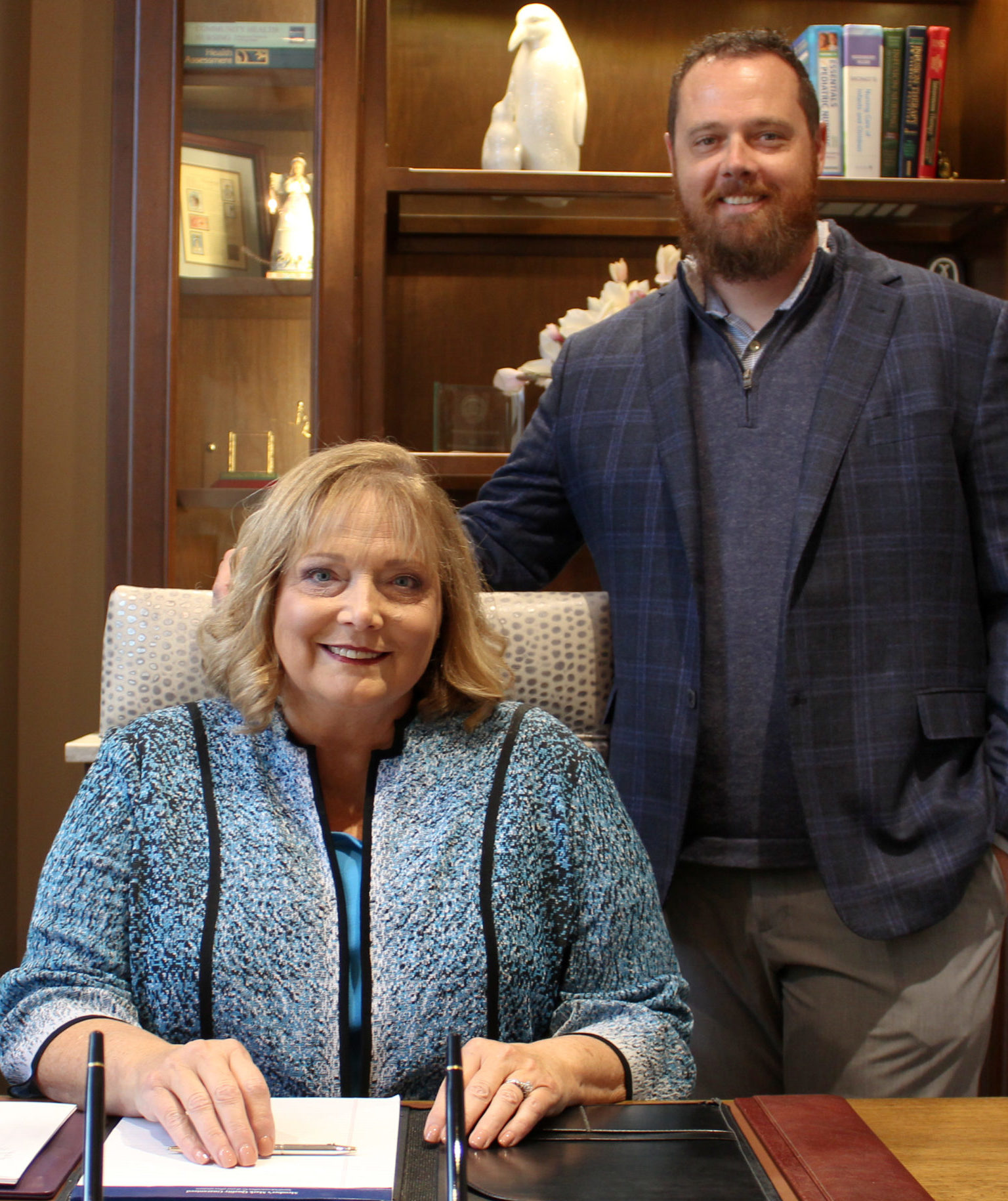 LISA SACKUVICH and ANDY COPELAND
LISA SACKUVICH and ANDY COPELANDThe need for WBE certification at a start-up health-care company wasn’t front and center when Lisa Sackuvich founded ARJ Infusion Services 20 years ago. But the world has change a great deal around that small health-care provider, which isn’t so small today: Revenues last year hit $92.8 million, elevating the company to No. 3 among the region’s biggest women-owned businesses. And the changing nature of health-care collaboration makes WBE certification an important tool, says Sackuvich, now the company’s chairman since turning day-to-day operations over to her son, Andy Copeland, in 2018. “I was not certified originally—I was late to the party on that,” Sackuvich says. But since reaching that status in 2016, “things have been very different,” she said, and not because the company can earn contracts the way a construction company might. “It does add another layer of credibility, another validation that we welcome people into what we’re doing and gives us a certain valuation,” she says. In the home-infusion business, typically dominated by men who are pharmacists, the designation carries clout with other insurers and potential partners who have their own mandates to diversify supplier and vendor networks. But certification itself only takes you so far. You have to deliver, at a high level, to achieve this kind of growth. For Copeland, that means dialing in to an organizational value set formulated by his mother, but with roots that run back to his grandparents—values that Sackuvich says include a strong work ethic, believing in yourself and that dreams come true, doing the right thing, honesty, integrity, fairness, kindness and adherence to the Hippocratic oath: Do no harm. As the company grew, Copeland says, “we did have to codify those values; we have them on the wall at all of our locations.” Job applicants are shown the six values—accountability, reliability, creating partnerships with stakeholders, being stewards of the community, supporting patient communities, and committing to excellence and teamwork. Each is asked to review and assess them, and their responses go a long way in determining whether they will secure a job offer. “This is the road map,” Copeland says. “We are looking for people who mirror those values. You find out a lot about somebody by the way they answer the question, ‘What do these mean to you?’”
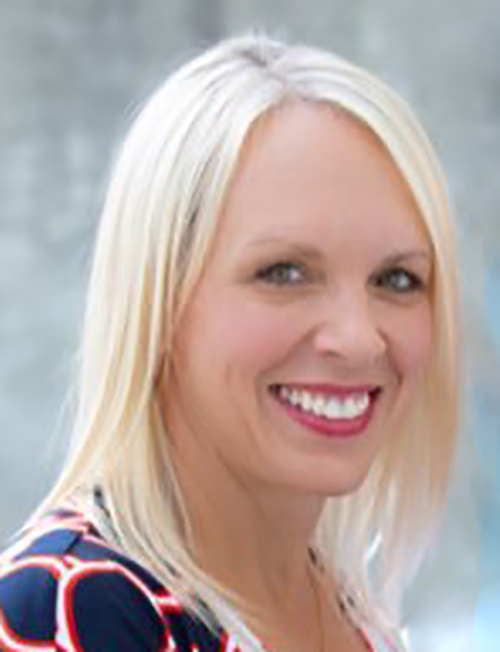 VANESSA LINSCOTT
VANESSA LINSCOTTCertification as a woman-owned business has helped Vanessa Linscott put Staco Electric on the path to success, but it’s also been something of a chip on her shoulder: “On a personal level, I feel that the WBE status has made me work even harder,” says the president of this Kansas City electrical contractor. Nobody, in her view, is going to look at Staco as a company that earned a job “just because.” “In my own mind I have always believed that it doesn’t matter if a person is tall or short, or male or female,” Linscott says. “If you can put together a group of people who will all pull on the same rope so many barriers can be tackled.” Despite working in the construction sphere—a space not known as a diversity trend-setter—Linscott says that “I have not experienced a situation when I found that being a woman hindered my success. I’ve always liked the quote, “Go ahead and tell me I can’t do something … that will be fun!” Part of the is the entrepreneurial DNA she inherited growing up in a family of business owners, including her parents and their siblings. “It was never instilled in me to believe that I had limits to the things I could do,” Linscott says. “In fact, I guess I always believed that I’d own my own business.” She leads that business and its roughly 175 employees with a personal belief that “leading by example is one of the most important qualities that a leader must possess,” Linscott says. “The qualities that you want to see in your organization must be modeled from the top-down.” So she has structured an open-dialogue environment, because “we want all of our employees to know that we want to hear from them regularly. In return, we strive to keep an open-door policy culture. We are a family-owned business and it is important to us that all of the people who work with us feel like they are a vital piece of that family.” You can’t argue with the success that her business vision has produced: Last year alone, the company’s revenues were up 53 percent year-over year. That has driven Staco into the Top 10 of the region’s largest women-owned businesses. It’s hard to imagine that, if she had a do-over, things would turn out any differently. To a younger version of herself, Linscott says, “I would encourage myself to take it a day at a time. To embrace all of the experiences along the way, beca-use each of them adds something important to the person you become. Even things that seem devastating at the time (being terminated from a sales job over a phone call) are opportunities for growth. I would give myself more grace. Most of all, I would say, “You are right: Good things are coming.”